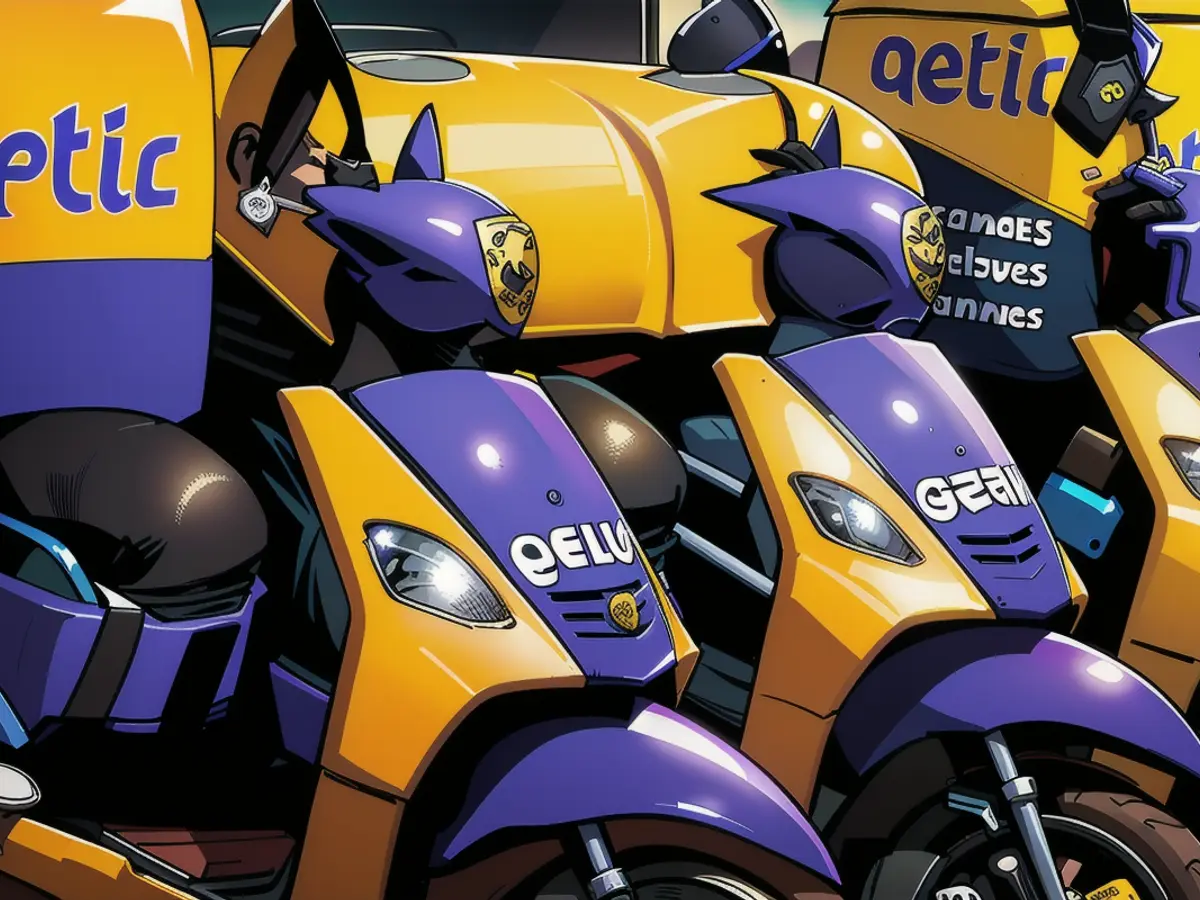Advancements in the field of delivery services.
The German Fast Commerce market is currently undergoing significant changes. Following the departure of delivery services Gorillas and Getir, the sector is in the process of restructuring. Now, Flink is the last remaining provider. Consumers may soon notice this in their wallets.
Ring-ring, alert, watch out! With oversized backpacks and a large box on the cargo bike, a delivery person rushes past on their electric bike. They're in a hurry. Somewhere, a customer eagerly awaits their order: maybe a missed egg package or even their entire weekly groceries.
The delivery drivers and ladies of food and restaurant services have dominated cityscapes for years, especially in cities. Clad in pink, blue, or orange work attire, they are easily spotted on the road. During the COVID-19 pandemic, providers saw an increase in demand - now, the market has cooled down.
This is especially true for the so-called Fast Commerce business, which involves the delivery of supermarket items within minutes. Just a few days ago, for instance, Getir decided to abandon its German locations. The delivery service aims to focus exclusively on the home market in Turkey from now on. According to its own statement, the company made just 7% of its revenues outside Turkey.
Getir had acquired the Berlin-based competitor Gorillas at the end of 2022. Both companies were considered pioneers of Fast Commerce in Germany. With aggressive marketing campaigns and a rapid delivery promise, they entered the market in 2020 and experienced a peak during the pandemic.
But Gorillas soon faced economic issues and received criticism for the working conditions of its drivers and riders. In May 2022, the company first let go of hundreds of employees and was taken over by Getir. However, the Turkish competitor also came to a dead stop shortly after. Now, it's all over in Germany, the UK, the US, and the Netherlands. Getir is fully withdrawing from Germany.
"It was surprising that the market was double-occupied and synergies were not used," explains Eva Stüber, a food retail expert at the Institute for Retail Research in Cologne (IFH). "Getir could have been more consistent and divided the markets between Getir and Gorillas." For both brands, the company had maintained an expensive warehouse infrastructure at the same locations instead of combining the warehouses.
With Getir's departure, Berlin-based Flink, which is also backed by the supermarket chain Rewe, is now one of the only pure Fast Commerce providers in Germany. Mentionable is also the beverage delivery service Flaschenpost from Münster, which is currently expanding its range.
Gorillas' exit could initially have a positive impact on Flink's sales. "We recently observed additional growth in the cities from which Gorillas and Getir have withdrawn, and we are optimistic about being able to win over more parts of the customer base for Flink," the company says in response to an inquiry. The company is considering taking over Gorillas' premises.
Eva Stüber, of the Cologne Institute for Retail Research, sees potential in the market. "The market for quick delivery of food and everyday items is still in its infancy and has tremendous potential," she says. "The current providers are still working on fine-tuning the business model and finding the best price-performance ratio."
Christoph Krauss of the consulting firm Roll & Pastuch adds that companies must act quickly to develop their business model toward profitability. "This will involve various measures that focus on the size of the shopping cart, efficiency of delivery, and implementing higher prices." Customers will likely see price increases.
Despite the uncertainty within the industry, experts see the market for food delivery as nowhere near exhausted. Last year, only around 3% of total food sales were done online, according to the German Trade Association (HDE). This represents significant room for growth. The segment is expected to grow by nearly 16% between 2020 and 2023 and ranks among the fastest-growing online areas.
Two more prominent companies trying to capture market share are Edeka and Rewe. Edeka operates its own online delivery service with longer delivery times and is constructing a specialized warehouse setup for this purpose. Rewe, on the other hand, is involved in the delivery service Picnic, which is expanding its network of locations.
"The rapid delivery times of the early years are no longer there with these competitors," Stüber says. "They used this method mainly to promote their services. Nowadays, services like Picnic's work just as well without this promise. The company operates fixed routes and supplies customers along these routes."
In the end, the online food trade is far from over, despite Getir's departure. "New companies will undoubtedly emerge, new startups will arise," says Stüber. "The dynamics will remain." It remains to be seen how the delivery drivers will navigate the cities.
Read also:
- Lack of snow also opens up new opportunities for winter tourism
- Abrupt end to e-car subsidies
- The chemical industry has little confidence
- Intersport boss hopes for sales boom through sporting events
After the withdrawal of Delivery services Gorillas and Getir from the German Fast Commerce market, consumers might notice changes in their wallets as Flink is now the sole provider. In the realm of online trading, companies are striving to adapt their business models towards profitability, which could lead to price increases for customers.
Source: www.ntv.de








